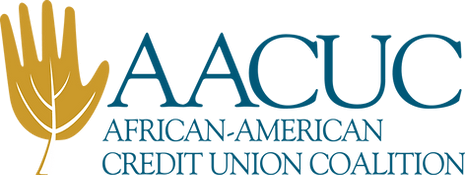In Changing Political Climate, CUs Stay the Course

In Changing Political Climate, CUs Stay the Course
DULUTH, Ga.—In recent years credit unions have embraced diversity, equity and inclusion (DEI) programs as eagerly as any industry, but amid growing “DEI backlash” the issue and the efforts have come under growing scrutiny. But Renée Sattiewhite believes credit unions remain committed, even as room for improvement remains.
At the same time Black History Month is being celebrated in February, more media reports are documenting the strong pushback by some to DEI initiatives, including from Elon Musk who recently posted on his X platform, “DEI must DIE.”
Across the country numerous companies have dialed back their DEI programs, with some states placing limitations on schools teaching such programs.
Sattiewhite, president of the African-American Credit Union Coalition (AACUC), told CUToday.info that among some companies DEI has become “a four-letter word.”

“People keep asking how's that affecting AACUC, and do I think this backlash will continue,” Sattiewhite said. “Those are quite interesting questions for me because AACUC is not experiencing a backlash. AACUC has more people reaching out to us than ever.”
Sattiewhite said she has worked to not concentrate on all the negativity.
“I don’t have any data, but I can address what I've seen in the media, the different people being let go in high diversity positions—C level positions,” Sattiewhite said. “By eliminating those positions, organizations are saying they don't need DEI anymore… There may be a base of people who are uncomfortable with the culture shift that is occurring in the United States of America, along with the color change of the United States.”
As CUToday.info has extensively reported, following the death of George Floyd at the hands of the Minneapolis Police, organizations began focusing on DEI, and many companies, including credit unions, began hiring DEI officers with a direct reporting line to company leaders.
The Pendulum Swings
But the pendulum has swung the other way.
“I think the political climate is changing again,” Sattiewhite said. “I think the political climate is destabilizing the efforts that have been good for diversity, equity and inclusion. And for me, I don't talk as much about the DEI anymore, because, as I said, among some people it’s turned into a four-letter word. Now, I just talk about inclusion and belonging and how we can move forward.”
Sattiewhite said she has not seen any instances of DEI pushback among the nation’s financial cooperatives.
“I haven't seen that in credit unions, not like I've seen on the news about different corporations,” she said. “There was one month where six top (DEI) executives were let go at different times. And these were prominent organizations. That sends a message publicly that DEI is not important.
“What I will say is that even though some credit unions decided they don't need certain positions after careful consideration, I feel our industry is malleable and that there we’re open to doing things differently,” Sattiewhite continued.
Room for Improvement
Sattiewhite believes credit unions can improve their DEI efforts.
“There are things we can absolutely get better at,” she said. “I feel good about the fact AACUC is asked to come into certain spaces, to have the conversations that can be uncomfortable. I have said for years that AACUC is the NAACP of the credit union industry, not in a watchdog kind of way but in a moral compass way.”
When it comes to increasing the number of people of color in C-suite positions at credit unions—which has been the subject of various initiatives over the years in credit unions—Sattiewhite said it remains an area that needs improving.
The Numbers n Credit Unions
“Six years ago I couldn't have given you any figures. But in 2020, Mike Mercer, when he was head of Georgia Affiliates, reached out to all the leagues and asked them to provide the number of African-American CEOs in each state,” she said. “In 2020, the number was 165. But we have not updated that total since. We will do so this year.”
AACUC’s research identified just 11 African Americans leading credit unions of more than $1 billion in assets out of approximately 450 total CUs in that peer group.
Sattiewhite noted that Carolinas CU League President Dan Schline said the league is pulling its own data to see how effective credit unions are at addressing DEI.
“That's heartwarming to me that some organizations are looking at their own data themselves, without having to be challenged,” she said. “There are boards and CEOs that are very interested in making sure their credit union serves the community. I think that while there are some credit unions that have changed management to make different decisions as it relates to DEI, as an industry, if I had to issue a grade, I’d give us a B-.”
The Big Picture
Sattiewhite is taking a big picture view.
“We have to look at this in its totality, right? There is still room to grow. It's a journey, it's not a destination,” she said. “We'll continue to modify and do different things. But I really believe the fact that ACCUC is taken seriously, CU Pride (an organization for the LGBTQ+ community in credit unions) is taken seriously, all these different organizations are taken seriously because of the DEI collective that is being created by all of those programs and organizations,” Sattiewhite said. “That is helping to move our industry forward with diversity, equity and inclusion, and belonging. We're all trying to do that. Is it perfect? No. Are there some bad things that happened? Absolutely. Are there some things that want to break your heart? Yes.”
As for why in the current environment there has been such pushback and criticism of DEI programs, Sattiewhite believes “it happens when people have a political agenda. We're storytellers, right? It's how we tell the story. Facts are facts. You can't argue with facts. But it also depends on how the facts are presented and who is presenting those facts. It’s also the influences. Where's all this coming from and who's influencing whom? What media figures and images are being portrayed? What are the headlines?”
One Important Fact
One of those facts emphasized by Sattiewhite is data showing DEI’s positive impacts on bottom lines needs greater attention. As CUToday.info reported, Filene Research Institute data show DEI efforts can boost business performance, as have other studies. Sattiewhite believes that if more data had been presented on the positive business effects from DEI, the current environment would be different.
“If the right figures were presented—and I think the data is there—we are not addressing this (backlash) issue today,” Sattiewhite said. “We didn't do enough when we had the opportunity. Now, I'm not saying throw the baby out with the bathwater. OK, we've identified a challenge, how are we going to fix it?”
Originial article available here.
Additional Info
Related Links : https://www.cutoday.info/THE-feature/In-Changing-Political-Climate-CUs-Stay-the-Course
Source : CUtoday.info
